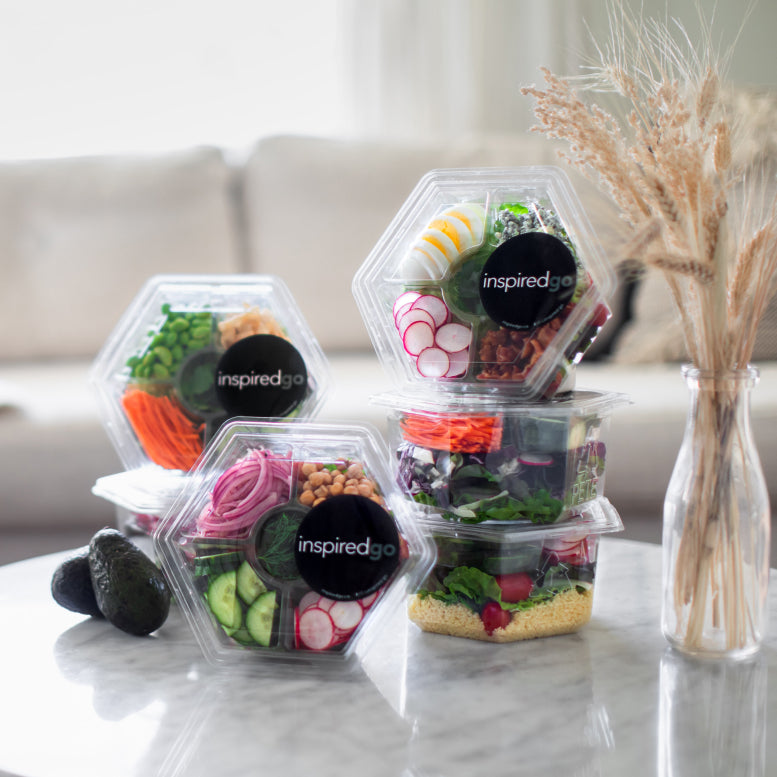What Does A Healthy Diet Look Like?
Table of Contents
1. What Does A Healthy Diet Look Like?
2. How to Eat Healthy for Weight Loss?
3. How Can a Diet Delivery Service Support Your Goals?
4. How Does Meal Delivery Help You Stick to a Healthy Diet?
1. What Does A Healthy Diet Look Like?
A healthy diet is more than just a buzzword; it's a lifestyle choice that has significant implications for your overall well-being. It's about consuming a diverse range of nutrient-dense foods in the right proportions, and it's about making choices that support not just your physical health, but your mental and emotional well-being as well. A well-rounded diet should include a variety of fruits and vegetables, lean proteins, whole grains, and healthy fats. It's not just about what you eat, but also how you eat. Mindful eating, which involves paying attention to your hunger and fullness cues, can play a crucial role in maintaining a healthy diet. Additionally, regular meal timing can help regulate your metabolism and keep your energy levels stable throughout the day. A healthy diet is an integral part of a balanced lifestyle, which also includes regular physical activity, adequate sleep, and stress management. With a bit of planning and preparation, anyone can incorporate these principles into their daily routine.
Order fresh salads today →


2. How to Eat Healthy for Weight Loss?
Diet food delivery services are a powerful tool for individuals aiming to lose weight without sacrificing nutrition or convenience. Weight loss-focused meal plans are designed with controlled calorie counts, balanced macronutrients, and pre-measured portions to prevent overeating. Meals often prioritize lean proteins, fiber-rich vegetables, and complex carbohydrates to promote satiety and sustained energy levels. Clear nutritional labeling ensures customers can track their calorie and nutrient intake accurately. Pre-planned weekly deliveries reduce impulsive eating and reliance on unhealthy snacks. By offering consistent, portion-controlled meals crafted to support weight loss, diet food delivery services simplify adhering to dietary goals while removing the hassle of cooking and preparation.
Choose your salads and schedule delivery →
3. How Can a Diet Delivery Service Support Your Goals?
Diet delivery services are designed to help customers achieve their health goals through structure, consistency, and convenience. Whether targeting weight loss, muscle gain, or overall wellness, these services offer tailored meal plans crafted by chefs and nutrition experts. Meals arrive fully prepared, eliminating the need for grocery shopping, cooking, and cleaning. Subscription options provide scheduled deliveries, ensuring continuous access to nutritious meals without disruptions. Nutritional labeling allows customers to track calorie and nutrient intake precisely, aligning with their dietary objectives. By removing the barriers to consistent healthy eating, diet delivery services empower customers to achieve their health goals sustainably and efficiently.
Get fresh salads and snacks delivered →
4. How Does Meal Delivery Help You Stick to a Healthy Diet?
Maintaining a healthy diet is easier when nutritious meals are readily available. One of the biggest obstacles to consistent healthy eating is the effort required to plan, shop, and prepare meals daily. Meal delivery services remove these barriers by offering ready-to-eat, nutritionally balanced meals that align with dietary goals. With access to portion-controlled, high-quality meals, individuals can avoid last-minute unhealthy food choices and stay on track with their health goals. The convenience of regular deliveries ensures that maintaining a balanced diet doesn’t become a struggle, allowing customers to focus on other priorities while still eating well.
Try our fresh, ready-to-eat salads →
Frequently Asked Questions
Eating healthy without cooking is achievable by incorporating ready-to-eat nutritious options into your diet. Pre-prepared salads, fresh fruit, nuts, yogurt, and meal delivery services offering balanced meals are excellent choices. Look for meals high in fiber, protein, and healthy fats while minimizing processed ingredients. This approach ensures you maintain a nutritious diet even with a busy lifestyle or lack of cooking time.
Eating healthy on a budget involves planning meals around affordable, nutrient-dense ingredients. Prioritize staples like whole grains, beans, and seasonal vegetables, which are both inexpensive and nutritious. Opt for meal prep services or delivery plans that offer cost-effective options for healthy eating. Buying in bulk, reducing waste, and preparing meals at home also significantly reduce costs while maintaining balanced nutrition.
A healthy diet is one that emphasizes whole, unprocessed foods like fruits, vegetables, lean proteins, whole grains, and healthy fats. It provides the necessary nutrients for energy, growth, and disease prevention while limiting added sugars, saturated fats, and highly processed foods. A balanced diet supports physical and mental well-being and can be tailored to meet individual nutritional needs.
To eat more healthily, focus on gradually incorporating whole foods into your meals. Start by adding more vegetables to your plate, swapping refined grains for whole grains, and opting for lean protein sources like fish or legumes. Stay hydrated and avoid sugary beverages. Small, consistent changes can lead to long-term improvements in dietary habits without feeling restrictive.
Eating healthy is essential for maintaining overall health and well-being. A balanced diet reduces the risk of chronic diseases such as diabetes, heart disease, and obesity while supporting energy levels, mental clarity, and immune function. Consuming nutrient-dense foods provides your body with the vitamins and minerals it needs to function optimally, contributing to a longer, healthier life.

